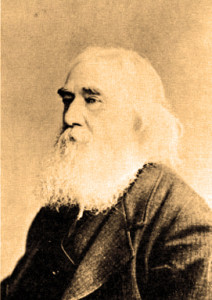In 1844, Lysander Spooner launched a mail company called the American Letter Mail Company. Spooner’s company competed directly with the U.S. Postal Service, delivering letters and parcels between major cities in the eastern United States at a lower price than the government’s rates. Spooner’s company had offices in Baltimore, Philadelphia, and New York, and delivered letters for 6 and ¼ cents per ounce, or twenty letters for a dollar. This significantly undercut the government’s rate of 12 cents per letter.
Spooner designed a ‘hub’ system between the major offices (similar to the system that was later developed by Federal Express and UPS). Upon receiving mail shipments at the hub offices, regional carriers would scurry across regional landscapes by railroad, steamboat and on foot. Soon, Spooner’s mail company was more efficient—and cheaper—than the U.S. Mail.
Spooner’s success was not lost on the U.S. government, which had previously held something of a monopoly. The U.S. government went after Spooner with a vengeance. U.S. Marshals descended on Spooner’s Philadelphia office and arrested office manager Calvin Case, on the ground of conveying letters contrary to the laws of Congress.
By 1851, after a brief legal battle, the government forced Spooner’s American Letter Mail Company out of business.
Spooner’s experience is the experience of thousands—perhaps millions—of poor Americans who have seen their dreams shattered by government regulation.
There was one positive outcome, however. U.S. Post Office was compelled to lower its rates significantly. Such is the nature of competition in a marketplace.


